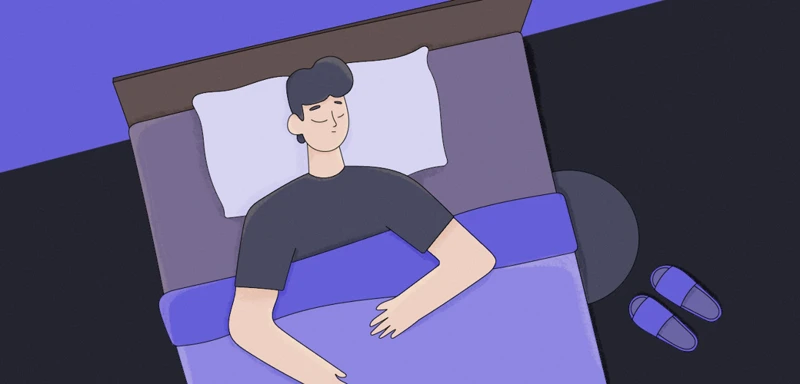Have you ever found yourself jolted awake from a dream where you were falling? It’s a perplexing experience that leaves you feeling disoriented and questioning the meaning behind such dreams. In this article, we delve into the fascinating world of falling dreams and explore how they reflect unresolved issues in our lives. From the fear of failure to a lack of control and deep-seated insecurities, falling dreams can provide valuable insights into the underlying struggles we may be facing. Join us as we uncover the common interpretations of these dreams and discover the hidden messages they hold.
Meaning of Falling Dreams

The meaning of falling dreams can vary based on individual experiences and interpretations. While some may view these dreams as mere random occurrences, many believe that they symbolize unresolved issues in our lives. When we dream of falling, it often represents a sense of insecurity, vulnerability, or anxiety. These dreams can stem from a fear of failure, the feeling of being out of control, or deep-seated self-doubt. Exploring the cultural and historical significance of falling dreams can offer deeper insights into their meanings and provide a broader context for our own experiences. While there may be common scenarios in falling dreams, such as falling from heights or losing balance, each individual’s dream carries its unique significance. Understanding the meaning behind these dreams can be a powerful tool for self-reflection and personal growth. If you’re curious about overcoming the fear associated with falling dreams, check out our article on tips and techniques to gain a sense of control and find peace.
Common Interpretations

When it comes to the common interpretations of falling dreams, there are several themes that often emerge. One prevalent interpretation is that falling dreams represent the fear of failure. These dreams may symbolize our anxieties about not meeting expectations or falling short in our personal or professional lives. Another interpretation is that falling dreams reflect a lack of control. They can signify a feeling of powerlessness or being overwhelmed by circumstances. Additionally, falling dreams may indicate deep-seated insecurities and self-doubt. They may highlight our doubts about our abilities or worthiness. Exploring the cultural and historical significance of falling dreams can provide further insights into their meanings and offer context for our own experiences. Understanding the common scenarios and significance behind falling dreams can help us unravel the messages they hold and gain a deeper understanding of ourselves. If you’re interested in learning more about the different scenarios and their significance, check out our article on common scenarios in falling dreams.
1. Fear of Failure
The fear of failure is a common interpretation of falling dreams. These dreams often represent the anxiety and uncertainty we may feel about our abilities or upcoming challenges. When we dream of falling, it can be a reflection of our deep-seated fear of not meeting expectations or falling short of our goals. This fear of failure can stem from various aspects of our lives, whether it’s academic, professional, or personal. In falling dreams, we may experience a sense of helplessness and vulnerability, mirroring the fear we have of not being able to control the outcome of a situation. Exploring the cultural and historical significance of falling dreams can shed further light on the collective anxieties associated with the fear of failure. Understanding the underlying causes of our fear can help us address and overcome them, allowing us to pursue our goals with confidence and resilience. For a deeper dive into the cultural and historical context of falling dreams, check out our article on exploring cultural and historical falling dreams.
2. Lack of Control
A dream featuring a lack of control can be a common interpretation of falling dreams. In these dreams, the feeling of helplessness arises from the perception that we are unable to steer the course of our lives or influence the outcomes of certain situations. It is as if we are at the mercy of external forces, leaving us with a deep sense of vulnerability and anxiety. This lack of control can manifest in various ways within falling dreams. For some, it might involve uncontrollable falling from a great height or a sensation of being pulled downwards with no ability to stop. Others may experience scenarios where they are unable to find solid ground or maintain balance, further intensifying the feeling of helplessness. These dreams can serve as a reminder of our deep-seated desire for control and the need to address any underlying issues that may be contributing to this sense of powerlessness. By acknowledging and working through these emotions, we can begin to regain a sense of control in our waking lives.
3. Insecurity and Self-doubt
Insecurity and self-doubt are common interpretations when it comes to falling dreams. These dreams often arise from deep-rooted feelings of inadequacy and a lack of confidence. When we experience a dream where we are falling, it can signify our anxieties about not measuring up to societal expectations or not being able to meet our own personal goals. The sensation of falling can be a metaphorical representation of our fear of failure and our doubts about our abilities to succeed. It’s important to acknowledge that these dreams are not a reflection of our true capabilities but rather a manifestation of our subconscious insecurities. By recognizing and addressing these underlying feelings of insecurity and self-doubt, we can work towards building our self-esteem and cultivating a belief in ourselves. Surrounding ourselves with positive support systems and engaging in self-care practices can also help alleviate these negative emotions. Remember, dreams are windows into our inner selves, and by embracing and understanding them, we can embark on a journey of empowerment and self-discovery.
Unresolved Issues Revealed

Unresolved issues lie beneath the surface of our consciousness, waiting to be acknowledged and addressed. Falling dreams serve as a window into these hidden struggles, offering a glimpse into our unresolved traumas, conflicts, and suppressed emotions. Past trauma can manifest in falling dreams, representing the lingering impact of painful experiences that still influence our psyche. Additionally, unresolved conflicts, whether personal or professional, can find their way into our dreams, reminding us of the need for resolution and closure. Suppressed emotions, such as anger, sadness, or fear, may also emerge in falling dreams, urging us to confront and process these feelings. It is through unraveling these unresolved issues that we can find healing and personal growth.
1. Past Trauma
Past trauma is a significant factor that can contribute to falling dreams. Experiences of traumatic events, such as accidents, abuse, or emotional distress, can leave a deep impact on our subconscious mind. When these unresolved traumas resurface in our dreams, they may manifest as falling. The sensation of falling can symbolize the feeling of losing control and being overwhelmed by past traumatic experiences. In these dreams, it is common to experience a sense of fear, vulnerability, and anxiety associated with the trauma. It is important to acknowledge and address these past traumas to promote healing and reduce the occurrence of falling dreams. Seeking professional help, such as therapy or counseling, can be instrumental in processing and resolving past trauma. Additionally, engaging in practices like journaling and self-reflection can help to bring awareness to these unresolved issues and support the healing process.
2. Unresolved Conflicts
Unresolved conflicts can play a significant role in our falling dreams. These dreams often serve as a reflection of the unresolved issues we have within our relationships, whether it’s with family, friends, or coworkers. When conflicts or disagreements are left unresolved, they can manifest in our dreams as falling, representing the lack of stability and harmony in those relationships. It’s important to address these conflicts head-on and seek resolution in order to find inner peace. In some cases, the conflicts may be symbolic of internal struggles, where different aspects of ourselves are in conflict with each other. This internal conflict can create a sense of imbalance and result in falling dreams as a metaphorical representation. By identifying and addressing these unresolved conflicts, we can work towards reconciliation and create healthier, more harmonious relationships. Whether it’s through open communication, seeking a mediator, or engaging in conflict resolution techniques, taking steps to resolve conflicts can help reduce the recurrence of falling dreams and bring about a sense of emotional well-being.
3. Suppressed Emotions
Suppressed emotions can play a significant role in the occurrence of falling dreams. When we consistently ignore or repress our emotions in our waking life, they can manifest in our dreams as intense experiences, including falling. These dreams serve as a reminder that we have unresolved emotions that need to be acknowledged and addressed. Feelings of anger, sadness, or fear that have been pushed down may find an outlet in our dreams, causing us to experience a sense of free-falling or helplessness. By suppressing our emotions, we are essentially denying ourselves the opportunity for healing and growth. It is important to create a safe space for ourselves where we can freely express and process our emotions, whether through journaling, therapy, or engaging in hobbies and activities that bring us joy. By allowing ourselves to confront and release suppressed emotions, we can reduce the occurrence and intensity of falling dreams, leading to a more balanced and fulfilling emotional life.
Tips for Resolving Issues
Resolving the unresolved issues that falling dreams reflect is crucial for personal growth and overall well-being. Here are some effective tips to help you address and resolve these issues. Firstly, journaling and self-reflection can be powerful tools in gaining insights into your thoughts and emotions associated with the unresolved issues. Take the time to write down your dreams, feelings, and any patterns or recurring themes that emerge. Seeking professional help is another valuable step towards finding resolution. Therapists and counselors can provide guidance, support, and techniques tailored to your specific needs. Additionally, practicing mindfulness and meditation can help you cultivate a sense of calm and self-awareness, allowing you to better understand and process your unresolved issues. By integrating these tips into your life, you can take significant strides towards resolving the underlying concerns reflected in your falling dreams.
1. Journaling and Self-reflection
Journaling and self-reflection are powerful tools that can aid in resolving the unresolved issues revealed through falling dreams. By putting pen to paper, you can explore your thoughts and emotions in a structured and introspective way. Start by dedicating a specific time each day or week to sit down and reflect on your dreams, allowing yourself to recall the details and any associated emotions. Write down your interpretations, feelings, and any patterns you notice. Consider using a journaling technique like free writing or stream of consciousness to allow your thoughts to flow freely without judgment. It can be helpful to use highlighters to mark key themes or recurring symbols in your dream journal entries. This process of self-reflection not only helps uncover the underlying issues related to your falling dreams but also encourages personal growth and self-awareness. Don’t be afraid to seek guidance or insights from dream analysis resources to further deepen your understanding of your dreams.
2. Seek Professional Help
Seeking professional help is a crucial step in resolving the unresolved issues that falling dreams may reflect. Whether it is a recurring theme or a particularly distressing dream, a therapist or counselor can provide valuable guidance and support. Here are some reasons why seeking professional help can be beneficial:
1. Objectivity: A trained professional can offer an objective perspective on your falling dreams and help you explore their underlying meanings. They can provide insights into patterns or recurring themes in your dreams that you might not have noticed on your own.
2. Expertise: Therapists and counselors have specialized knowledge and experience in dream analysis and psychotherapy. They can help you navigate the complex emotions and unresolved issues that your falling dreams may be signaling.
3. Emotional support: Dealing with unresolved issues can be emotionally challenging. A therapist or counselor can provide a safe and supportive space for you to express and process your feelings related to your dreams. They can help you work through any fears, insecurities, or traumas that may be surfacing in your dreams.
4. Holistic approach: Professional help can facilitate a holistic approach to resolving your unresolved issues. Therapists can help you identify any underlying psychological, emotional, or relational factors that may be contributing to your falling dreams. They can then guide you in developing personalized strategies and coping mechanisms to address these issues.
Remember, seeking professional help is not a sign of weakness, but rather a proactive step towards understanding and resolving the unresolved issues behind your falling dreams. It is important to find a therapist or counselor who specializes in dream analysis or offers a comprehensive approach to therapy.
3. Practice Mindfulness and Meditation
Practicing mindfulness and meditation is an effective way to address and resolve the unresolved issues that may be reflected in falling dreams. Mindfulness involves bringing our attention to the present moment, acknowledging our thoughts and emotions without judgment. By cultivating a state of mindfulness, we can begin to unravel the underlying causes of our unresolved issues.
One powerful method is to incorporate meditation into our daily routine. Find a quiet and comfortable space where you can sit or lie down. Close your eyes and focus on your breath, allowing yourself to become fully present. As thoughts arise, gently acknowledge them and let them pass without attachment. This practice allows us to observe our thoughts and emotions objectively, gaining insights into the root causes of our unresolved issues.
Another technique is body scan meditation, which involves systematically bringing awareness to different parts of the body. Start at the top of your head and slowly move your attention down to your toes, noticing any sensations or areas of tension. This practice helps us become attuned to any physical manifestations of unresolved issues and allows for release and healing.
In addition to formal meditation practices, incorporating mindfulness into daily activities is beneficial. Pay attention to the sensations of everyday tasks like eating, walking, or washing dishes. By being fully present, we can engage with the present moment and gain clarity on the underlying issues that may be fueling our falling dreams.
Remember that the practice of mindfulness and meditation takes time and patience. It may be helpful to start with guided meditations or join a meditation group to receive support and guidance. As you develop a regular practice, you’ll likely notice a greater sense of self-awareness and a deeper understanding of your unresolved issues, leading to their resolution and ultimately, a peaceful sleep free from falling dreams.
Conclusion
In conclusion, falling dreams act as a mirror to our unresolved issues, fears, and insecurities. They provide us with valuable insights into the underlying struggles we may be facing in our waking lives. Whether it’s the fear of failure, a lack of control, or deep-seated self-doubt, these dreams force us to confront and address our unresolved emotions and experiences. By recognizing the meaning behind falling dreams, we can embark on a journey of self-reflection and personal growth. Journaling, seeking professional help, and practicing mindfulness and meditation are effective ways to navigate and resolve these issues. Remember, falling dreams are not something to fear but rather an opportunity for self-discovery and healing. Embrace them, learn from them, and let them guide you towards a more fulfilled and balanced life.
Frequently Asked Questions
1. Why do falling dreams feel so real?
Falling dreams often feel incredibly real due to the activation of our brain’s sensory system during sleep. Our minds create vivid images, sensations, and emotions, making the dream experience seem authentic.
2. Are falling dreams a common occurrence?
Yes, falling dreams are quite common. Many people report having had at least one falling dream in their lifetime. They can occur sporadically or recur frequently, depending on the individual.
3. Do falling dreams always have negative meanings?
No, falling dreams do not always have negative meanings. While they often reflect unresolved issues or anxieties, they can also represent a desire for change or a need to let go of something holding you back.
4. Can falling dreams predict future events?
Falling dreams are not considered to be predictive of future events. They are more closely linked to our subconscious thoughts, emotions, and experiences, rather than acting as a foresight mechanism for future happenings.
5. Are falling dreams related to sleep disorders?
Falling dreams themselves are not indicative of sleep disorders. However, recurrent nightmares, including falling dreams, can be associated with certain sleep disorders or emotional distress that may warrant further investigation.
6. Can falling dreams be stopped or prevented?
Preventing falling dreams entirely may be challenging since they stem from unresolved issues in our lives. However, managing stress, practicing relaxation techniques before bed, and addressing underlying concerns may reduce the frequency of these dreams.
7. Are falling dreams experienced differently by different cultures?
Yes, interpretations of falling dreams can vary across different cultures. Cultural beliefs, folklore, and personal experiences shape how individuals perceive and interpret these dreams, adding unique layers of meaning to the overall experience.
8. Can falling dreams be analyzed by professionals?
Yes, falling dreams, like other types of dreams, can be analyzed by professionals such as psychologists or therapists. These professionals can provide helpful insights into the possible meanings and help individuals navigate their unresolved issues.
9. Can falling dreams provide guidance for personal growth?
Absolutely. Falling dreams can offer valuable guidance for personal growth by bringing attention to our fears, insecurities, or unresolved issues. Exploring the meaning behind these dreams allows us to address these concerns and work towards personal development.
10. Should I be concerned if I frequently experience falling dreams?
If you frequently experience falling dreams that disrupt your sleep or cause significant distress, it may be helpful to consult a healthcare professional or a mental health expert. They can help identify any underlying issues that may be contributing to the frequency of these dreams.








